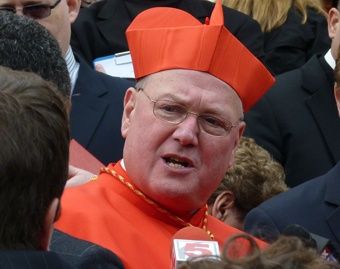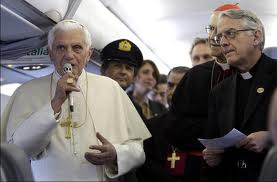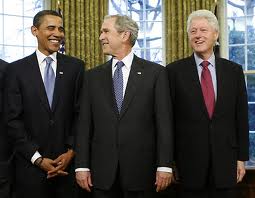
Washington D.C., Sep 13, 2012 / 04:01 am (CNA).- Religious freedom in the United States has historically been understood as allowing religion to “flourish unfettered from government intrusion,” said Cardinal Timothy M. Dolan of New York. “Simply put, government has no business interfering in the internal life of the soul, conscience, or church,” said the cardinal, who serves at the president of the U.S. Conference of Catholic Bishops.
Cardinal Dolan delivered the John Carroll Society Lecture at the Newseum in Washington, D.C. on Sept. 10. He voiced concern that “the promotion and protection of religious liberty is becoming caricatured as some narrow, hyper-defensive, far-right, self-serving cause.” “Nothing can be more inaccurate,” he said. “Rather, freedom of religion has been the driving force of almost every enlightened, un-shackling, noble cause in American history.”
Cardinal Dolan attempted to “restore the luster” of religious freedom by outlining its role throughout American history. The American Revolution itself was influenced by the Great Awakening and spurred on by ministers who encouraged participation in the fight for freedom, he observed. Churches served as “an essential partner” in the American Revolution, and freedom of religion was praised in the new nation’s foundational documents, securing “a spot in the public square for the voices of those speaking from a faith-formed conscience,” he said. In the fight against the slavery, abolitionist leaders were “mostly inspired by religious conviction,” he noted, listing prominent figures whose “devotion to the cause to end slavery flowed from a conscience formed by faith.” “In a land where loyalty to conscience and freedom of religion were not guaranteed, emancipation would have come at a much tragically later date,” he said.

Catholic news - The Pope called upon the Christians in the Middle East to help create peace in their often troubled countries. “I exhort all Christians of the Middle East, both those born there and the newly arrived, to be builders of peace and architects of reconciliation,” said the Pope at the Vatican Sept. 12. “Let us pray to God that he may fortify the faith of Christians in Lebanon and the Middle East, and fill them with hope.”
Only 48-hours before his Apostolic Visit to Lebanon begins, Pope Benedict XVI has called upon the Christians of the Middle East to help create peace in the troubled region. “I exhort all Christians of the Middle East, both those born there and the newly arrived, to be builders of peace and architects of reconciliation,” the Pope said at the conclusion of his General Audience at the Vatican Sept. 12. “Let us pray to God that he may fortify the faith of Christians in Lebanon and the Middle East, and fill them with hope.” The Pope is making the 3-day trip to the Mediterranean state Sept. 14 - 16 to sign his Post-Synodal Apostolic Exhortation on the Church in the Middle East.
He flies into a region, though, which is still a state of often violent flux following several years of anti-government uprisings known as the “Arab Spring.” In Lebanon’s neighboring country of Syria tens of thousands of lives have been lost since an armed revolt against President Bashar al-Assad got underway in March 2011. The United Nations refugee agency estimates that nearly 250,000 Syrians have now fled to surrounding nations including Lebanon. Meanwhile in the wider Arab world, both Egypt and Libya have witnessed anti-American riots in recent days leading to the killing of the United States Ambassador to Libya, Christopher Stevens, in the city of Benghazi Sept. 11. The violent protests were sparked by the posting on YouTube of extracts of a low-budget US film mocking the Prophet Mohammed, the founder of the Islamic religion.
“The history of the Middle East teaches us the important and sometimes primordial role played by the various Christian communities in inter-religious and inter-cultural dialogue,” observed Pope Benedict.

The theme of the president’s 2012 reelection campaign is that George W. Bush left such a terrible mess that Barack Obama could hardly be expected to clean it up in four years. In other words, 44 months of unemployment rates above 8 percent, $5 trillion in new borrowing, $16 trillion in aggregate debt, gas prices of nearly $4 per gallon, a dive in average family income, and involvement in two wars were all due to George Bush and simply too difficult for anyone to overcome. So Obama cannot be judged on his record between 2009 and 2012.
At first glance, this is a most unusual claim. Gerald Ford followed the mess of Richard Nixon’s Watergate scandal and the Arab oil embargo. After serving for less than three years, he failed to win reelection. His successor, Jimmy Carter, seemed to make a bad situation even worse. He exited four years later, tagged with a high “misery index” fueled by rampant unemployment and roaring inflation. Ronald Reagan took office under Carter’s baleful legacy but ran for reelection successfully in 1984 based not on “Carter did it,” but on the recovery he engineered.
Bill Clinton was elected in 1992 on “It’s the economy, stupid,” and he was reelected four years later after claiming credit for boom times. George W. Bush inherited the aftershocks of the dot-com meltdown and a country ill-equipped to respond to terrorist assaults after the nonchalance of the 1990s. Despite the 9/11 attacks, Bush was reelected on the themes of a good economy and a safer country. Blaming or praising presidents for their four years of governance is an American tradition. That is why Obama asserted at the outset that if he could not turn around the economy, his presidency would be a “one-term proposition.”
William Harris, professor at the University of Otago in New Zealand and sometimes NOW Lebanon contributor, is one of the premier …
Khazen History


Historical Feature:
Churches and Monasteries of the Khazen family

St. Anthony of Padua Church in Ballouneh
Mar Abda Church in Bakaatit Kanaan
Saint Michael Church in Bkaatouta
Saint Therese Church in Qolayaat
Saint Simeon Stylites (مار سمعان العامودي) Church In Ajaltoun
Virgin Mary Church (سيدة المعونات) in Sheilé
Assumption of Mary Church in Ballouneh
1 - The sword of the Maronite Prince
2 - LES KHAZEN CONSULS DE FRANCE
3 - LES MARONITES & LES KHAZEN
4 - LES MAAN & LES KHAZEN
5 - ORIGINE DE LA FAMILLE
Population Movements to Keserwan - The Khazens and The Maans
ما جاء عن الثورة في المقاطعة الكسروانية
ثورة أهالي كسروان على المشايخ الخوازنة وأسبابها
Origins of the "Prince of Maronite" Title
Growing diversity: the Khazin sheiks and the clergy in the first decades of the 18th century
Historical Members:
Barbar Beik El Khazen [English]
Patriach Toubia Kaiss El Khazen(Biography & Life Part1 Part2) (Arabic)
Patriach Youssef Dargham El Khazen (Cont'd)
Cheikh Bishara Jafal El Khazen
Patriarch Youssef Raji El Khazen
The Martyrs Cheikh Philippe & Cheikh Farid El Khazen
Cheikh Nawfal El Khazen (Consul De France)
Cheikh Hossun El Khazen (Consul De France)
Cheikh Abou-Nawfal El Khazen (Consul De France)
Cheikh Francis Abee Nader & his son Yousef
Cheikh Abou-Kanso El Khazen (Consul De France)
Cheikh Abou Nader El Khazen
Cheikh Chafic El Khazen
Cheikh Keserwan El Khazen
Cheikh Serhal El Khazen [English]
Cheikh Rafiq El Khazen [English]
Cheikh Hanna El Khazen
Cheikha Arzi El Khazen
Marie El Khazen